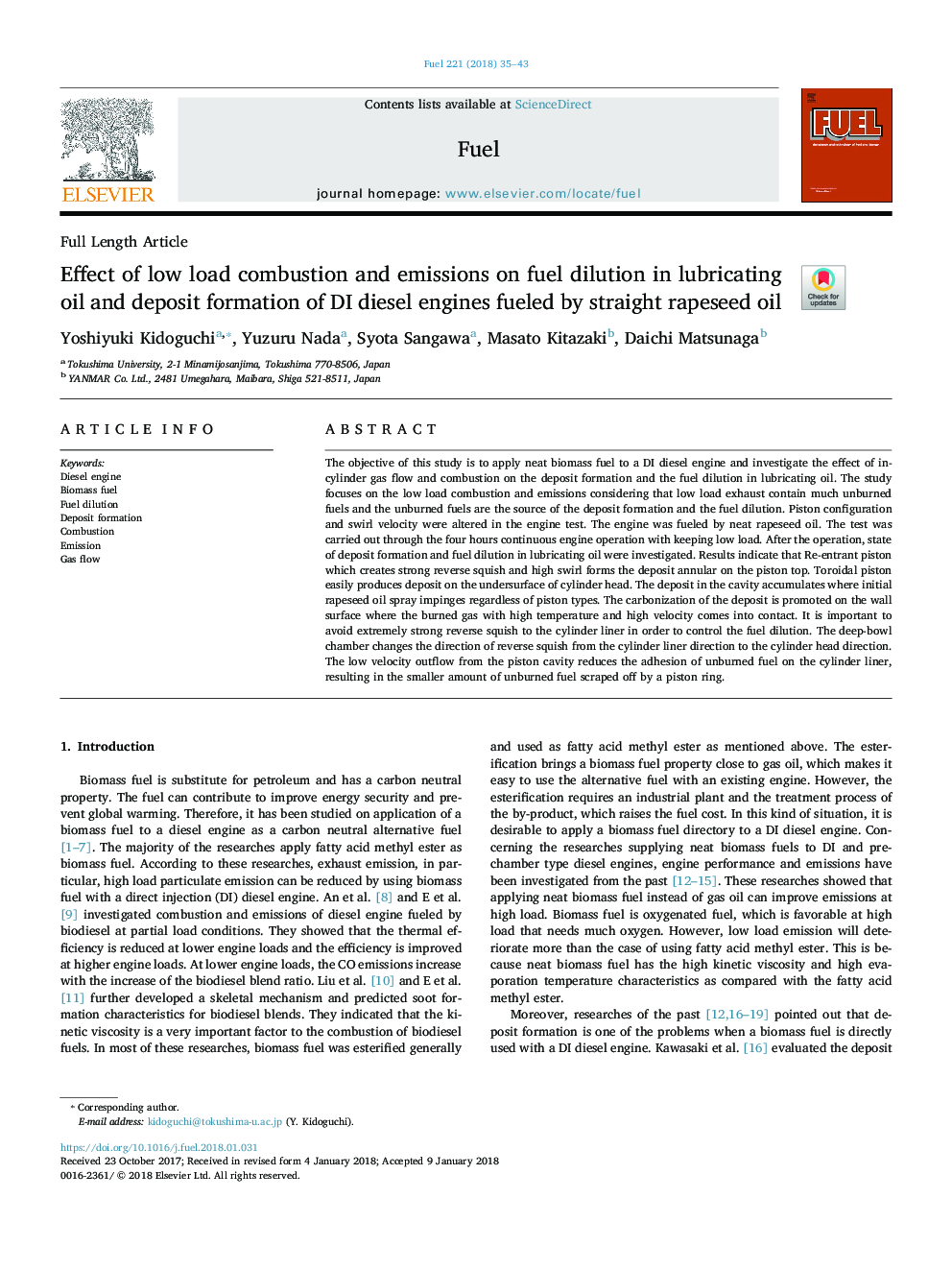| کد مقاله | کد نشریه | سال انتشار | مقاله انگلیسی | نسخه تمام متن |
|---|---|---|---|---|
| 6631509 | 1424943 | 2018 | 9 صفحه PDF | دانلود رایگان |
عنوان انگلیسی مقاله ISI
Effect of low load combustion and emissions on fuel dilution in lubricating oil and deposit formation of DI diesel engines fueled by straight rapeseed oil
دانلود مقاله + سفارش ترجمه
دانلود مقاله ISI انگلیسی
رایگان برای ایرانیان
کلمات کلیدی
موضوعات مرتبط
مهندسی و علوم پایه
مهندسی شیمی
مهندسی شیمی (عمومی)
پیش نمایش صفحه اول مقاله

چکیده انگلیسی
The objective of this study is to apply neat biomass fuel to a DI diesel engine and investigate the effect of in-cylinder gas flow and combustion on the deposit formation and the fuel dilution in lubricating oil. The study focuses on the low load combustion and emissions considering that low load exhaust contain much unburned fuels and the unburned fuels are the source of the deposit formation and the fuel dilution. Piston configuration and swirl velocity were altered in the engine test. The engine was fueled by neat rapeseed oil. The test was carried out through the four hours continuous engine operation with keeping low load. After the operation, state of deposit formation and fuel dilution in lubricating oil were investigated. Results indicate that Re-entrant piston which creates strong reverse squish and high swirl forms the deposit annular on the piston top. Toroidal piston easily produces deposit on the undersurface of cylinder head. The deposit in the cavity accumulates where initial rapeseed oil spray impinges regardless of piston types. The carbonization of the deposit is promoted on the wall surface where the burned gas with high temperature and high velocity comes into contact. It is important to avoid extremely strong reverse squish to the cylinder liner in order to control the fuel dilution. The deep-bowl chamber changes the direction of reverse squish from the cylinder liner direction to the cylinder head direction. The low velocity outflow from the piston cavity reduces the adhesion of unburned fuel on the cylinder liner, resulting in the smaller amount of unburned fuel scraped off by a piston ring.
ناشر
Database: Elsevier - ScienceDirect (ساینس دایرکت)
Journal: Fuel - Volume 221, 1 June 2018, Pages 35-43
Journal: Fuel - Volume 221, 1 June 2018, Pages 35-43
نویسندگان
Yoshiyuki Kidoguchi, Yuzuru Nada, Syota Sangawa, Masato Kitazaki, Daichi Matsunaga,